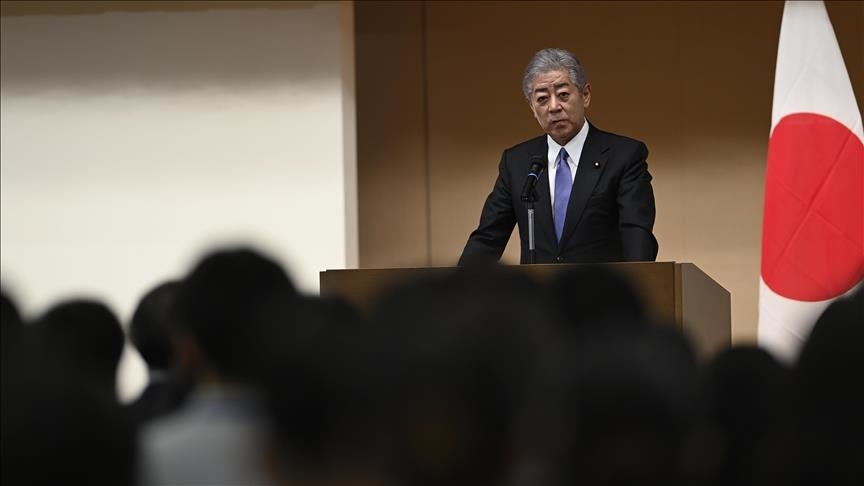Outcome of Ukraine war to impact Asia: Japanese foreign minister
Several Asian officials address Munich Security Conference in Germany

ISTANBUL
Japanese Foreign Affairs Minister Iwaya Takeshi Saturday said any outcome of the Ukraine-Russia war will impact the Asian region.
Takeshi was addressing Munich Security Conference in Germany which was also attended by several officials from Asian nations.
"The Russian invasion of Ukraine has had a huge impact in terms of international order. We are seeing this collapse. And of course, this will have a huge impact on terms of the situation in Asia," said Takeshi.
"There must be a fair and lasting peace established in Ukraine. Russia ending up as a winner... such an ending must not happen in the terms of Asia’s security and also the global security. The outcome of the Ukraine war may have a huge impact on global security environment," he added.
The outcome of Ukraine "is one of the major concerns regarding Taiwan... China and Taiwan relationship must be resolved in a peaceful manner through dialogue," he added.
The statement by Japanese top diplomat came in the wake of initiative taken by US President Donald Trump to end the three-year Russia-Ukraine war with direction negotiations with Moscow.
Beijing claims Taiwan as its “breakaway province” and opposes any interference in its internal affairs.
Several other high-level Asian officials participated in panels during the second day of the Munich Security Conference.
In his comments, South Korean Foreign Affairs Minister Cho Tae-yul highlighted Seoul’s “good relations” with both China and the US, stressing the need for “transparency and predictability” in diplomatic ties.
New Zealand Defense Minister Judith Collins compared Kiwi nation’s geopolitical situation to “a treasury with a very small lock,” referencing the country's wealth beneath the seabed.
Collins, however, expressed concerns about the Cook Islands’ agreement with China, stating that New Zealand was not “adequately” consulted.
Cook Islands signed a pact with China on Friday but details are not known. New Zealand feels sidelines by the Southern Pacific Island nation.
Raising tensions in the disputed South China Sea at the conference, Philippines top diplomat Enrique Manalo stressed importance of a “free and safe” environment in the vast waterbody.
Warning of potential escalating tensions without naming any nation, Manalo claimed Manila follows international law.
However, he while accused “other countries” of imposing their domestic laws on the disputed waters.
Tensions between the Philippines and China, which has counter claims in the South China Sea, have dominated the vats water body for several months.
Responding to Manalo, former Chinese Vice Foreign Minister Fu Ying responded claimed China “operates professionally in the area.”
Joining the debate, Singaporean Defense Minister Ng Eng Hen noted that European nations, the US, and China have increased their maritime activities in the South China Sea.
He pointed out that China was building its own "Monroe" doctrine.
Hina Rabbani Khar, former foreign minister of Pakistan, pointed out South Asian nation’s vulnerability to neighboring Afghanistan’s internal situation due to their shared border.
She expressed concerns about the security implications of weapons left behind by the US in Afghanistan and called for a regional coalition to address the issues of insecurity.
The three-day Munich Security Conference is due to end Sunday.
Anadolu Agency website contains only a portion of the news stories offered to subscribers in the AA News Broadcasting System (HAS), and in summarized form. Please contact us for subscription options.







